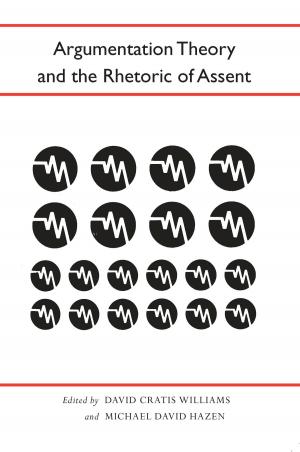Tender Is the Night and F. Scott Fitzgerald's Sentimental Identities
Fiction & Literature, Literary Theory & Criticism, American| Author: | Christian K. Messenger | ISBN: | 9780817387976 |
| Publisher: | University of Alabama Press | Publication: | January 15, 2015 |
| Imprint: | University Alabama Press | Language: | English |
| Author: | Christian K. Messenger |
| ISBN: | 9780817387976 |
| Publisher: | University of Alabama Press |
| Publication: | January 15, 2015 |
| Imprint: | University Alabama Press |
| Language: | English |
In this fascinating study, Chris Messenger posits F. Scott Fitzgerald as a great master of sentiment in modern American fiction. Sentimental forms both attracted and repelled Fitzgerald while defining his deepest impulses as a prose writer. Messenger demonstrates that the sentimental identities, refractions, and influences Fitzgerald explores in Tender Is the Night define key components in his affective life, which evolved into a powerful aesthetic that informed his vocation as a modernist writer.
In “Tender Is the Night” and F. Scott Fitzgerald’s Sentimental Identities, Messenger traces the roots of Fitzgerald’s writing career to the deaths of his two infant sisters a few months before his own birth. It was their loss, Fitzgerald wrote, that made him a writer. Messenger highlights how the loss of Fitzgerald’s siblings powerfully molded his relation to maternal nurturing and sympathy in Tender Is the Night as well as how it shaped the homosocial intimations of its care-giving protagonist, psychiatrist Dick Diver. A concomitant grief and mourning was fueled by Fitzgerald’s intimate and intense creative rivalry with his often-institutionalized wife, Zelda Sayre Fitzgerald.
While sentiment is a discredited strain in high modernism, Fitzgerald nevertheless embraced it in Tender Is the Night to fashion this most poignant and beautiful successor to The Great Gatsby. Fitzgerald’s aesthetic and emotional preoccupations came most vividly to life in this major novel. Messenger describes how Fitzgerald, creating his character Nicole Warren Diver as a victim of paternal incest, finally found the sentimental key to finishing his novel and uniting his vision of the two narratives of “saving” the two sisters and reimagining the agony of his wife and their marriage.
Fitzgerald’s productive quarrel with and through sentiment defines his career, and Messenger convincingly argues that Tender Is the Night should be placed alongside The**Great Gatsby as a classic exemplar of the modern novel.
In this fascinating study, Chris Messenger posits F. Scott Fitzgerald as a great master of sentiment in modern American fiction. Sentimental forms both attracted and repelled Fitzgerald while defining his deepest impulses as a prose writer. Messenger demonstrates that the sentimental identities, refractions, and influences Fitzgerald explores in Tender Is the Night define key components in his affective life, which evolved into a powerful aesthetic that informed his vocation as a modernist writer.
In “Tender Is the Night” and F. Scott Fitzgerald’s Sentimental Identities, Messenger traces the roots of Fitzgerald’s writing career to the deaths of his two infant sisters a few months before his own birth. It was their loss, Fitzgerald wrote, that made him a writer. Messenger highlights how the loss of Fitzgerald’s siblings powerfully molded his relation to maternal nurturing and sympathy in Tender Is the Night as well as how it shaped the homosocial intimations of its care-giving protagonist, psychiatrist Dick Diver. A concomitant grief and mourning was fueled by Fitzgerald’s intimate and intense creative rivalry with his often-institutionalized wife, Zelda Sayre Fitzgerald.
While sentiment is a discredited strain in high modernism, Fitzgerald nevertheless embraced it in Tender Is the Night to fashion this most poignant and beautiful successor to The Great Gatsby. Fitzgerald’s aesthetic and emotional preoccupations came most vividly to life in this major novel. Messenger describes how Fitzgerald, creating his character Nicole Warren Diver as a victim of paternal incest, finally found the sentimental key to finishing his novel and uniting his vision of the two narratives of “saving” the two sisters and reimagining the agony of his wife and their marriage.
Fitzgerald’s productive quarrel with and through sentiment defines his career, and Messenger convincingly argues that Tender Is the Night should be placed alongside The**Great Gatsby as a classic exemplar of the modern novel.















